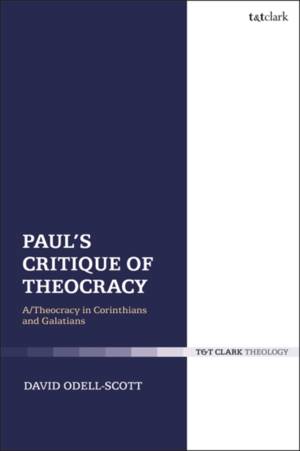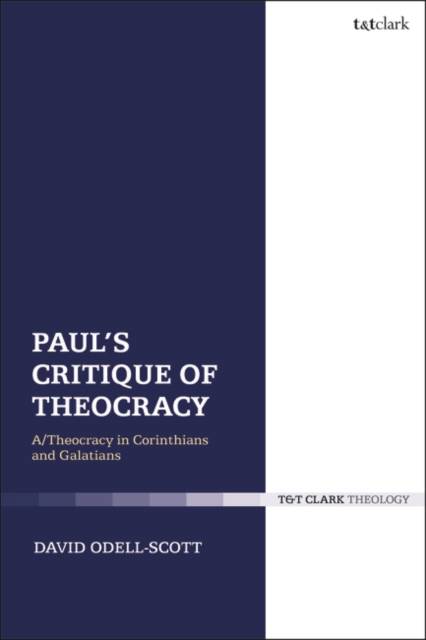
- Afhalen na 1 uur in een winkel met voorraad
- Gratis thuislevering in België vanaf € 30
- Ruim aanbod met 7 miljoen producten
- Afhalen na 1 uur in een winkel met voorraad
- Gratis thuislevering in België vanaf € 30
- Ruim aanbod met 7 miljoen producten
Zoeken
€ 373,45
+ 746 punten
Omschrijving
Paul's Critique of Theocracy offers an interpretation of select texts in Corinthians and Galatians concerned with the establishment of legitimate authority in the Christian community. Odell-Scott argues that for Paul, no one may boast that they are selected by God, and no one has the authority to rule as God's representative.
Paul also criticizes those who exhibit a superior "sacredness" over other community members. Contrary to most scholarly views, Odell-Scott argues that Paul is not taking sides in a debate about the proper authority structure. Rather, he criticizes any notion of such a structure, opposing it with his metaphor of the Church as the body of Christ and the "sacred family" of God. The exegesis is also sketched out in a postmodern framework criticizing hierarchy through differentiation.
Paul also criticizes those who exhibit a superior "sacredness" over other community members. Contrary to most scholarly views, Odell-Scott argues that Paul is not taking sides in a debate about the proper authority structure. Rather, he criticizes any notion of such a structure, opposing it with his metaphor of the Church as the body of Christ and the "sacred family" of God. The exegesis is also sketched out in a postmodern framework criticizing hierarchy through differentiation.
Specificaties
Betrokkenen
- Auteur(s):
- Uitgeverij:
Inhoud
- Aantal bladzijden:
- 200
- Taal:
- Engels
- Reeks:
- Reeksnummer:
- nr. 250
Eigenschappen
- Productcode (EAN):
- 9780826469663
- Verschijningsdatum:
- 1/01/2004
- Uitvoering:
- Hardcover
- Formaat:
- Genaaid
- Afmetingen:
- 157 mm x 243 mm
- Gewicht:
- 444 g

Alleen bij Standaard Boekhandel
+ 746 punten op je klantenkaart van Standaard Boekhandel
Beoordelingen
We publiceren alleen reviews die voldoen aan de voorwaarden voor reviews. Bekijk onze voorwaarden voor reviews.











